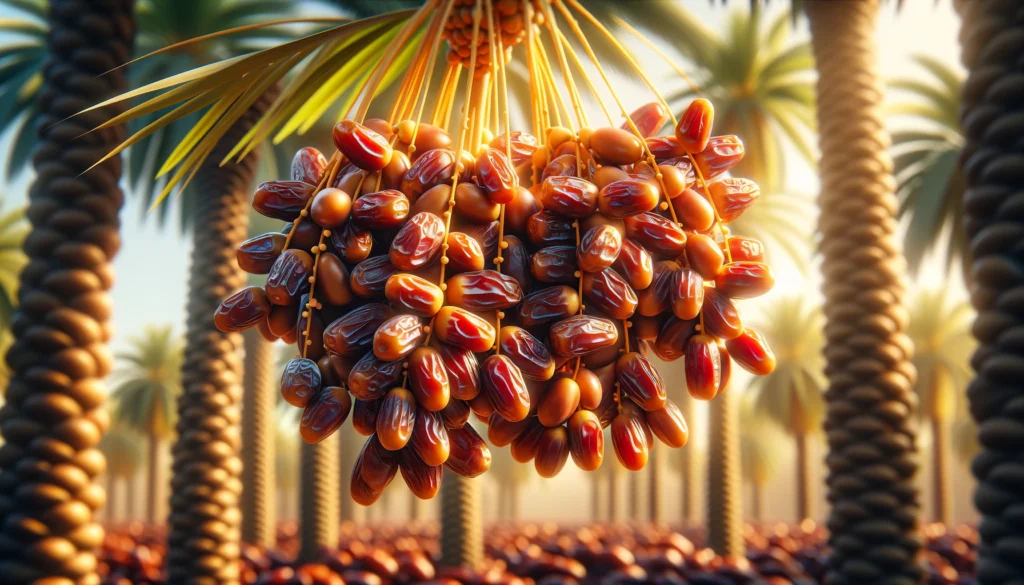Date palms hold a unique place in Spain’s agricultural and cultural landscape. These majestic trees, with their long, arching fronds and clusters of sweet fruit, are more than just a scenic beauty; they’re a testament to Spain’s rich agricultural history and a key player in its economy. In this article, we delve into the world of date palms in Spain, exploring their history, cultivation, and significance.
Key Takeaways
- Date palms are a significant part of Spain’s agricultural and cultural heritage.
- They thrive in the warm climates of regions like Valencia and Alicante.
- Cultivation practices balance traditional methods with modern agriculture.
- The economic and touristic value of date palms is substantial.

History and Origin of Date Palms in Spain
Date palms were likely introduced to Spain by the Phoenicians or the Moors, blending seamlessly into the country’s diverse agricultural tapestry. These trees have flourished in the Spanish soil, adapting to the Mediterranean climate and becoming a symbol of life and prosperity in the region. Their historical journey is as rich as the fruit they bear, with each era adding a layer to their story.
Geographical Distribution of Date Palms in Spain
The warm, arid regions of southeastern Spain, such as Valencia and Alicante, provide the perfect climate for date palms. These areas, with their mild winters and long, hot summers, mimic the palms’ native desert conditions, allowing them to thrive.
Cultivation Practices for Date Palms in Spain
Spanish farmers employ a blend of traditional and modern techniques to cultivate date palms. Key factors such as irrigation, suitable soil, and pest control are meticulously managed to ensure healthy growth and abundant harvests. These practices are crucial in maintaining the quality and quantity of the dates produced.
Economic Significance
The economic contribution of date palms to Spain’s economy cannot be understated. From local markets to international exports, the sale of dates provides a significant income stream. The fruits are not only a dietary staple but also a source of livelihood for many Spanish farmers.
Cultural and Touristic Importance
Date palms are deeply ingrained in Spanish culture, featuring in many local festivals and traditions. Tourists are often drawn to the picturesque palm groves, making them an important part of Spain’s tourism industry.
Challenges and Conservation Efforts
Despite their resilience, date palms in Spain face challenges such as climate change and diseases. Efforts are being made to conserve these trees and promote sustainable farming practices to ensure their survival for future generations.
FAQs
- What regions in Spain are known for date palm cultivation?
- The southeastern regions like Valencia and Alicante are renowned for their date palm groves.
- How do date palms contribute to Spain’s economy?
- Through both the local and export markets, date palms are a significant economic contributor.




